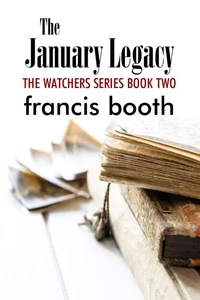Killing The Angel: Early British Transgressive Woman Writers
Par : ,Formats :
Disponible dans votre compte client Decitre ou Furet du Nord dès validation de votre commande. Le format ePub est :
- Compatible avec une lecture sur My Vivlio (smartphone, tablette, ordinateur)
- Compatible avec une lecture sur liseuses Vivlio
- Pour les liseuses autres que Vivlio, vous devez utiliser le logiciel Adobe Digital Edition. Non compatible avec la lecture sur les liseuses Kindle, Remarkable et Sony
 , qui est-ce ?
, qui est-ce ?Notre partenaire de plateforme de lecture numérique où vous retrouverez l'ensemble de vos ebooks gratuitement
Pour en savoir plus sur nos ebooks, consultez notre aide en ligne ici
- FormatePub
- ISBN8224415281
- EAN9798224415281
- Date de parution29/06/2024
- Protection num.pas de protection
- Infos supplémentairesepub
- ÉditeurVirtued Press
Résumé
Virginia Woolf said a woman writer had first to kill the Angel in the House. This book is about British women writers who comprehensively killed the Angel in their own house, who transgressed the expectations placed upon the women of their time by learning to read, learning languages, learning to think for themselves, enjoying the company of other, equally transgressive women, studying and translating contemporary European literature and the male classics of the patriarchive, often for money, transgressing the unspoken prohibition against women being professional writers and, most transgressive of all, daring to publish their own original writings under their own names.
Virginia Woolf said 'nothing is known about women before the eighteenth century, ' and in her time nothing much was. But we know a lot more these days about those early transgressive women, the foremothers of contemporary women writers, the creators of the still-emerging matriarchive. As Woolf said, 'Without those forerunners, Jane Austen and the Brontës and George Eliot could no more have written than Shakespeare could have written without Marlowe, or Marlowe without Chaucer, or Chaucer without those forgotten poets who paved the ways and tamed the natural savagery of the tongue.'Killing the Angel weaves an Ariadne's thread, connecting together some of these British women writers, from the earliest days of the English language to the end of the eighteenth century.
Virginia Woolf said 'nothing is known about women before the eighteenth century, ' and in her time nothing much was. But we know a lot more these days about those early transgressive women, the foremothers of contemporary women writers, the creators of the still-emerging matriarchive. As Woolf said, 'Without those forerunners, Jane Austen and the Brontës and George Eliot could no more have written than Shakespeare could have written without Marlowe, or Marlowe without Chaucer, or Chaucer without those forgotten poets who paved the ways and tamed the natural savagery of the tongue.'Killing the Angel weaves an Ariadne's thread, connecting together some of these British women writers, from the earliest days of the English language to the end of the eighteenth century.
Virginia Woolf said a woman writer had first to kill the Angel in the House. This book is about British women writers who comprehensively killed the Angel in their own house, who transgressed the expectations placed upon the women of their time by learning to read, learning languages, learning to think for themselves, enjoying the company of other, equally transgressive women, studying and translating contemporary European literature and the male classics of the patriarchive, often for money, transgressing the unspoken prohibition against women being professional writers and, most transgressive of all, daring to publish their own original writings under their own names.
Virginia Woolf said 'nothing is known about women before the eighteenth century, ' and in her time nothing much was. But we know a lot more these days about those early transgressive women, the foremothers of contemporary women writers, the creators of the still-emerging matriarchive. As Woolf said, 'Without those forerunners, Jane Austen and the Brontës and George Eliot could no more have written than Shakespeare could have written without Marlowe, or Marlowe without Chaucer, or Chaucer without those forgotten poets who paved the ways and tamed the natural savagery of the tongue.'Killing the Angel weaves an Ariadne's thread, connecting together some of these British women writers, from the earliest days of the English language to the end of the eighteenth century.
Virginia Woolf said 'nothing is known about women before the eighteenth century, ' and in her time nothing much was. But we know a lot more these days about those early transgressive women, the foremothers of contemporary women writers, the creators of the still-emerging matriarchive. As Woolf said, 'Without those forerunners, Jane Austen and the Brontës and George Eliot could no more have written than Shakespeare could have written without Marlowe, or Marlowe without Chaucer, or Chaucer without those forgotten poets who paved the ways and tamed the natural savagery of the tongue.'Killing the Angel weaves an Ariadne's thread, connecting together some of these British women writers, from the earliest days of the English language to the end of the eighteenth century.







